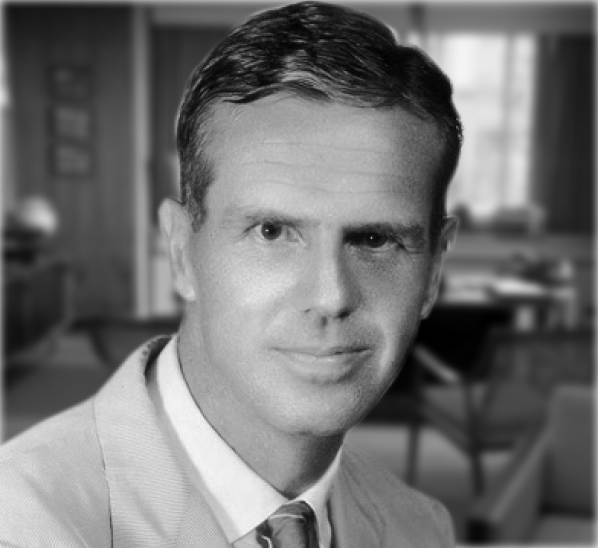- He became expert in the treatment of cataracts and eye infections that were prevalent in the area.
- Ten years later, Dr. HOLLAND extended his work, during the two winter months, to Shikarpur in North Sind, starting an eye clinic that today is one of the largest in the world.
- Father and son have made significant contributions to medical science. Operating under severe handicaps, the HOLLANDS over the years have achieved a 97 percent success with their eye surgery.
- The RMAF Board of Trustees recognizes the selfless dedication of their renowned surgical skills to combat the blight of blindness in a remote hinterland. In a Christian ministry of healing, they and their colleagues over the past 59 years have restored sight to more than 150,000 nomads and plainsmen and otherwise relieved the suffering of thousands more to whom no other help was available. Giving succor not only through medicine and surgery but through understanding, human touch, they have cared for all people as individuals and believed in their dignity and importance.
In 1900, Dr. HENRY HOLLAND joined the Anglican medical mission at Quetta, now in West Pakistan. He came to a small, pioneer hospital in a bleak land of rugged mountains and parched plains, where seasonal extremes of intense heat and bitter cold compelled the tribesmen to live a pastoral, nomadic existence.
Among the tribesmen were brigands and Muslim fanatics whose lives were given to blood feuds, but the young medical graduate saw the courage and pathos of these independent people and prepared himself to help them. He learned three of their languages and mastered simple conversation in four other tongues. At the same time, he became expert in the treatment of cataracts and eye infections that were prevalent in the area.
As the hospital’s and the doctor’s reputations spread, a motley “invasion” of patients began each spring and autumn when the nomads moved to and from their pastures. Swarthy Baluchi, wandering Brahui and tall, marauding Pathans waited their turn with Sindhis and Punjabis who had come up from the plains. Treatment was free for the poor. A pittance was charged those who could afford to pay a little, and even for the well-to-do the cost was nominal.
Ten years later, Dr. HOLLAND extended his work, during the two winter months, to Shikarpur in North Sind, starting an eye clinic that today is one of the largest in the world. In slack periods, he made grueling journeys to encampments of tribesmen to patch up wounds and sometimes perform delicate eye operations. Quetta, meanwhile, was growing under his stewardship into a well-established medical and surgical center with a training school for nurses.
For the HOLLANDS, medical service has since become a family tradition. Both sons became doctors and joined their father. Harry now is continuing mission work in England among lay Christians going abroad. RONALD has taken over as ophthalmic surgeon of the three. Like his mother, RONALD’s wife is a nurse, serving as an expert anesthetist and keeping hospital accounts though confined by paralytic polio to a wheelchair.
Dr. RONALD HOLLAND has followed his father’s example in learning the languages of the area. Operating from early morning until nightfall during the busy seasons at Quetta and Shikarpur, he also remembers the distant tribes. Across the Baluchistan wastelands he travels by land rover or jeep where his father moved on horseback or by camel to bring relief to penniless nomads.
Father and son have made significant contributions to medical science. Operating under severe handicaps, the HOLLANDS over the years have achieved a 97 percent success with their eye surgery. Their methods for mass operative treatment under field conditions are now widely studied abroad, and eye specialists from around the world have come to work and learn at Shikarpur.
The son, like the father, has not been tempted from his chosen work in Pakistan by attractive professional offers elsewhere. Imbued with a sure sense of vocation, the HOLLANDS welcome to their hospitals all who come regardless of faith, and the love that inspires their sense of public service goes out to everyone.
In electing SIR HENRY and RONALD HOLLAND to share the 1960 Ramon Magsaysay Award for Public Service, the Board of Trustees recognizes the selfless dedication of their renowned surgical skills to combat the blight of blindness in a remote hinterland. In a Christian ministry of healing, they and their colleagues over the past 59 years have restored sight to more than 150,000 nomads and plainsmen and otherwise relieved the suffering of thousands more to whom no other help was available. Giving succor not only through medicine and surgery but through understanding, human touch, they have cared for all people as individuals and believed in their dignity and importance.
We received with utmost surprise the telegram announcing the honor of the Ramon Magsaysay award. We feel quite undeserving of this award personally, but accept it very gratefully on behalf of the whole hospital staff, as it is a tribute to the efforts, under the guidance of God, of a team of men and women, both past and present, Pakistani and British, American and from other nations, who have been welded together into a unity in a common purpose of service for those in need.
It is also a very great privilege to be able to come here and see your lovely country and to pay tribute to the late President Magsaysay, whose courage and determined devotion to the ordinary people of the country is reflected also in the unobtrusive lives of many people throughout Asia, whose names will perhaps never be known to the outside world, but whose qualities and value have been so rightly emphasized by the awards given in his memory. These many thousands we are proud and happy to represent today and to identify ourselves with them in the tasks that lie ahead in the knowledge that all our work that is inspired and upheld by God will resound to His Glory.

